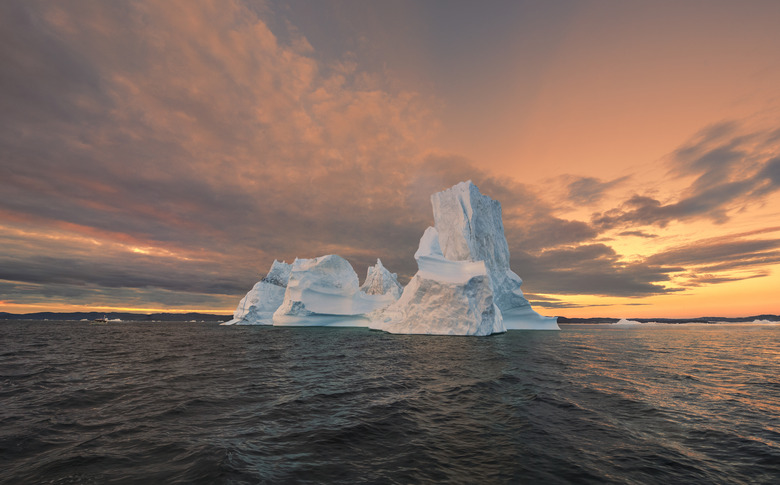What The End Of An Ice Age Can Teach Us About Climate Change
As much as scientists may hate to admit it, one of the lines climate change deniers often repeat is actually true: The earth's climate has changed before – multiple times.
Don't get us wrong: Acknowledging that the earth's climate has changed in the past doesn't dispute that this round of climate change is caused by humans (it is). But it does mean that we can look to the kind of changes that happened in the earth's history for insight into how climate might ultimately affect us.
This week, a team of 42 researchers from all around the world did just that. Their massive study, published in the journal Science, outlines some of the massive ecological changes that have happened in response to climate change – and the changes that might make our planet unrecognizable in the near future.
History's Mass Climate Changes Transformed Our Planet
History's Mass Climate Changes Transformed Our Planet
The last major global warming event was the end of an ice age, which ended between 20,000 and 10,000 years ago. At that time, large glaciers that once covered the entire planet began to melt. This gave way to the "interglacial" period – where glaciers cover just the coldest parts of the planet – that we're in today.
To study exactly how different ecosystems changed around the world, the team of researchers looked at the abundance of different types of pollen around the world – a reflection of the plant life at the time. By tracking changes in the pollen levels, the team could identify how much various regions of the world had changed. If pollen levels stayed pretty stable, for instance, the ecosystem may not have changed too much. If there were massive swings in the pollen levels, that signals a significant change.
They found that ecological changes were more pronounced the closer you got to the poles, and were especially massive in North America and Europe. As the glaciers melted, pollen levels increased – which means what had once been barren ice fields turned into forests and greenery.
At the equator, which had smaller temperature changes, the changes in pollen levels were less pronounced. The smaller temperature change meant the ecosystem did not change as much.
What Do These Results Mean for Climate Change?
What Do These Results Mean for Climate Change?
Scientists might not be able to look into a crystal ball and see everything that'll happen to earth, but they know one thing: The earth's transformation due to climate change is likely to be even more dramatic.
That's because, while we're looking at a similar temperature change compared to the end of the ice age, we're starting from a much higher baseline. "We're going from warm to way warmer and on time scales that are way faster than anything experienced in the past," Connor Nolan, the lead researcher of the study, told the Washington Post.
And we're already seeing some of the effects – like massive wildfires combined with draughts that keep trees from repopulating. Changes to the tree populations can have other effects, like impacting how water travels through rivers, lakes and streams. People may need to relocate to access clean drinking water – and land we use to grow staple crops like wheat may not be suitable to farm in the future.
The Future May Look Bleak – But It's Not Hopeless
The Future May Look Bleak – But It's Not Hopeless
Facing a massive climate crisis, it's understandable if you feel a little defeated. But there's some good news too.
Some of the states most affected by climate change are taking steps to control emissions. Last week, California announced it would shift to 50 percent clean energy by 2026, and to 100 percent clean energy by 2045. And local governments from cities around the world have announced clean energy regulations that will reduce emissions from cities.
You can be part of the solution, too. Write to your local, federal and state representatives and explain why climate change is important to you – and lead the fight against climate change at home.
Cite This Article
MLA
Tremblay, Sylvie. "What The End Of An Ice Age Can Teach Us About Climate Change" sciencing.com, https://www.sciencing.com/what-the-end-of-an-ice-age-can-teach-us-about-climate-change-13714727/. 5 September 2018.
APA
Tremblay, Sylvie. (2018, September 5). What The End Of An Ice Age Can Teach Us About Climate Change. sciencing.com. Retrieved from https://www.sciencing.com/what-the-end-of-an-ice-age-can-teach-us-about-climate-change-13714727/
Chicago
Tremblay, Sylvie. What The End Of An Ice Age Can Teach Us About Climate Change last modified August 30, 2022. https://www.sciencing.com/what-the-end-of-an-ice-age-can-teach-us-about-climate-change-13714727/
